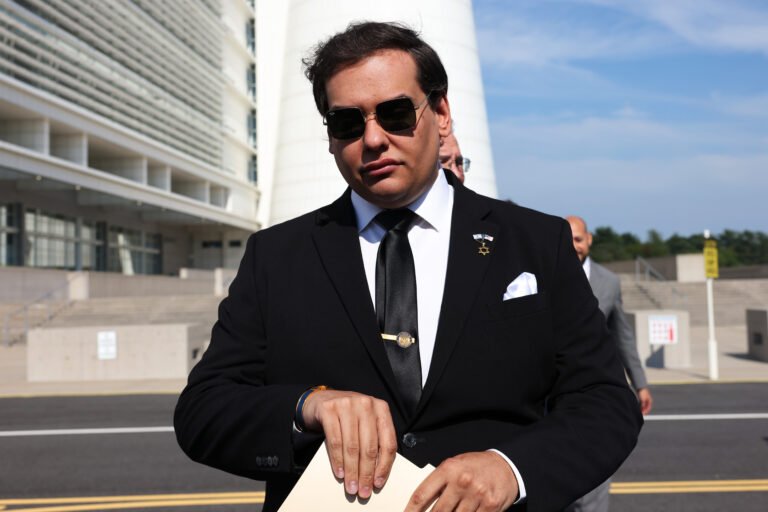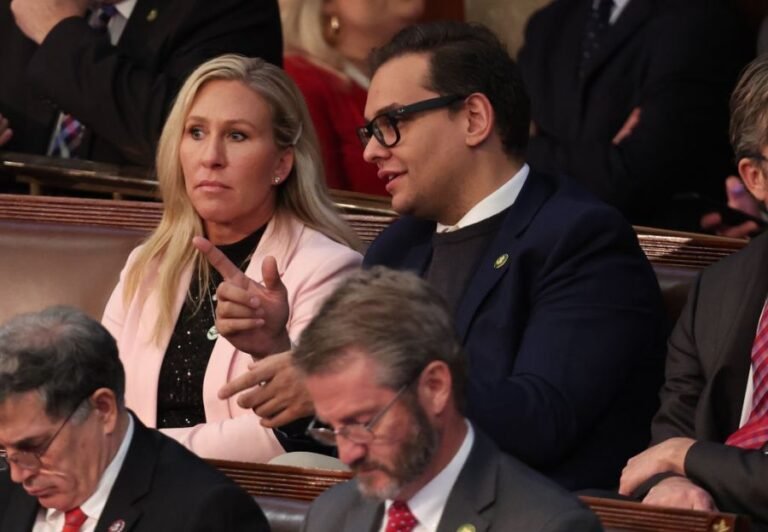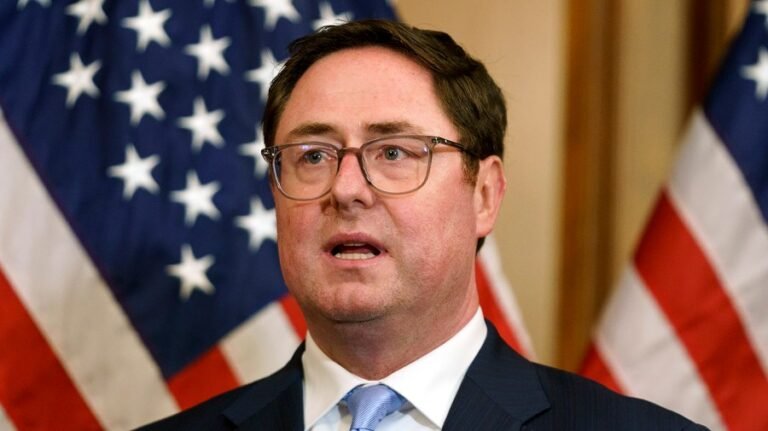At next week’s NATO Annual Summit in the Netherlands, leaders of the 32 alliance members will come together to discuss priorities and the way ahead for NATO at a time when Russia and China pose pressing security threats.
President Trump should pivot towards strengthening the transatlantic organization — here are the five reasons why.
First, Russian President Vladimir Putin is playing the United States. He does not want peace in Ukraine. Russia is the antagonist in this conflict, and conditions for Ukraine are slowly worsening with each passing day. To end this trajectory, options are to punish Russia financially or to strengthen Ukraine militarily. Sens. Lindsey Graham (R-S.C.) and Richard Blumenthal (D-Conn.) recently met with Ukraine’s President Volodymyr Zelensky and wholeheartedly believe Putin is preparing for a new offensive, despite the high costs.
More to the point, a June 2 meeting between Ukrainian and Russian officials in Istanbul, ostensibly to end the war, ended abruptly after less than 90 minutes with no real discussion about peace. If Trump draws back from the negotiations without demonstrating strength towards Russia, Putin will get exactly what he wants — in the end, control over Ukraine and a reformatting of Europe’s security structure.
Second, NATO has stood by the U.S., and Trump should be proud to return the favor with respect to transatlantic security. The only time NATO invoked Article V (treating an attack on one member as an attack on all) was right after the 9/11 attacks on the U.S. If the U.S. fails to remain engaged in NATO, the world could see an escalation to the war more broadly on the European continent.
Europe will take more responsibility for its own security, but it needs time to build credible conventional forces and will still depend on the U.S. nuclear umbrella. Trade between the U.S. and the European Union is one of the most expansive in terms of absolute dollars on the global stage coming in at $975 billion in 2024. Market disruptions would be cataclysmic if war expanded to include countries on NATO’s eastern flank. Russia will seek to test the resolve of the alliance if it perceives that the U.S. is doubting its commitments. Accordingly, the U.S. must maintain at least a credible forward presence of its military alongside our allies to deter Russia’s ambitions from moving westward and strongly uphold Article V. The alternative hurt both the U.S. and European Union economically.
Third, a robust relationship with NATO will leave Trump with a freer hand to deal with China. Continuous Chinese military capability and capacities are an increasing threat. On one side, China wants to be a large economic partner to both Europe and the U.S. On the other hand, its security policy actions are detrimental to a constructive relationship with the West. The strategic partnership between China and Russia should be monitored closely — not least the Chinese support enabling Russia’s war in Ukraine. U.S. engagement with NATO will improve coordination to deal with this dual threat.
Fourth, NATO engagement will provide the U.S. with improved collective intelligence sharing. Joint and combined Intelligence, Surveillance, and Reconnaissance is an important capability to forewarn NATO (including the U.S.) of impending threats. Moreover, NATO members each have unique intelligence gathering capabilities and, as was the case in the leadup to the February 2022 invasion of Ukraine, NATO countries should be transparent with the processed intelligence they prepare.
Unlike China and Russia, the U.S. benefits from a wide intelligence network, and this collective intelligence sharing could be quite useful regarding antagonistic states, terrorism and President Trump’s Golden Dome initiative. U.S. engagement at the summit should press NATO countries to continue to be transparent with intelligence sharing, especially on threats to Alliance member countries.
Fifth, NATO engagement will help enhance cyber capabilities — another asymmetric capability that all adversaries of the United States use, as highlighted in the most recent Annual Threat Assessment. Moving beyond cyber defense, discussion at The Hague Summit should press for computer network operations, and more specifically computer network attack and computer network exploitation capabilities. Adversaries such as Russia and questionable actors such as China are using these tools against NATO members and allies alike. Not only does NATO benefit, but all member countries, especially the United States, would realize advantages as well.
The fact that the NATO alliance has survived more than 75 years is quite significant. That said, the alliance cannot rest on its laurels. The U.S. plays a pivotal part in moving forward with serious discussion regarding these five issues. The security of both the U.S. and Europe is at stake.
Tom Røseth, Ph.D. is an associate professor at the Norwegian Defence University College and founder of its Ukraine Program. He is coauthor of “The ‘Five Eyes’ Intelligence Sharing Relationship: A Contemporary Perspective.” John Weaver, DPA, is a professor of Intelligence Analysis at York College and author of “NATO in Contemporary Times: Purpose, Relevance, Future.”


